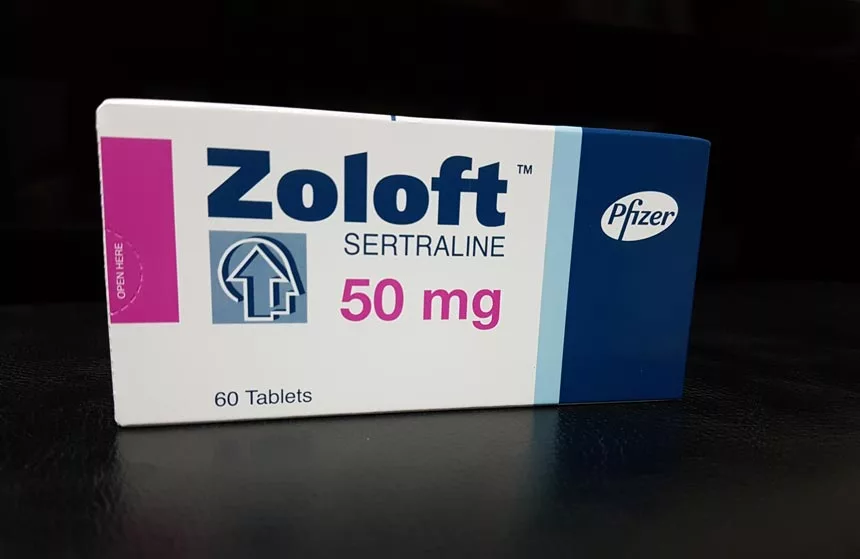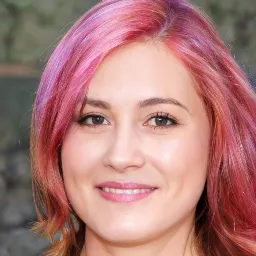Is Zoloft Addictive?
Table of Contents
- Is Zoloft Addictive?
- What Conditions Does Zoloft Treat?
- Does Zoloft Get You High?
- Is Zoloft a Form of Opioid or Painkiller?
- What are the Side Effects of Zoloft?
- Does Zoloft Cause Dizziness or Hallucinations?
- Zoloft Withdrawal Symptoms
- The Benefits of Medical Detox for Zoloft
- Zoloft Addiction and Seeking Help
- Paying for Zoloft Addiction Treatment
- Find Addiction Rehabs: Here for You
- Frequently Asked Questions on Zoloft Addiction
Zoloft remains a widely prescribed antidepressant in the US. Recent studies have shown that depression may affect as much as 16 million Americans yearly. Zoloft is generally an effective and safe medication when used as prescribed. Zoloft and other antidepressants like it can help balance brain chemicals that impact your emotions and your mood.
Major depressive disorder and panic disorder are among the two most common disorders Zoloft is typically used to treat. They can also help you sleep and boost your concentration. However, Zoloft misuse might cause addiction and, in extreme cases, overdoses.
Read on to find out about Zoloft addiction and find forms of effective treatment now!
What Conditions Does Zoloft Treat?
Zoloft is also known by its trade name, Sertraline. The drug is an antidepressant with a few additional applications. Zoloft treats conditions including depression, panic attacks, obsessive-compulsive disorder, social anxiety disorder, and post-traumatic stress disorder. In some cases, it has been used to relieve certain premenstrual dysphoric disorder symptoms.
Zoloft works by increasing levels of serotonin in your brain. Serotonin is one of many chemicals that transmit signals between nerve cells (neurons) and plays an important role in regulating moods and emotions as well as physical processes such as appetite and sleep patterns. It is important to note that people who don’t produce enough serotonin may be more prone to addictive behaviors in general.

Many Zoloft users consume it for the feel-good, calming, and mood-boosting effects it provides. These effects are not immediate but instead occur over several weeks. Many patients report that they feel a lower incidence of depressive symptoms instead of an intense rush. This typically occurs is a person is using Zoloft for genuine medical need and paying attention to the prescribing doctor’s guidance.
Does Zoloft Get You High?
Zoloft provides relief from depression in many ways, but other questions typically come up when discussing this substance, such as: Is Zoloft addictive? How common is it to abuse Zoloft?
While there is a need for more research to verify results, initial studies indicate that abusing the substance does not result in a high.
Some individuals may crush and snort the powdered Zoloft to increase the effects it has on the body. Others may create mixtures of Zoloft with some other substance to enhance the effects of both. Unfortunately, mixing illicit substances this way may result in unexpected side effects and even death. Even worse, it may lead to the medicine being rendered ineffective.
For some, it could lead to even worse side effects than either individual drug produces. A typical combination that occurs far too frequently is antidepressants and alcohol. This cocktail may impair your cognitive and motor functioning. Frustrating mental impairments may result, including poor motor skills, memory loss, confusion, and difficulty thinking clearly, or making decisions. This mixture can also impair your motor function, increasing the chances of an accident.
Is Zoloft a Form of Opioid or Painkiller?
Zoloft is not an opioid, even though misconceptions abound regarding its classification. Zoloft is a powerful antidepressant and falls into the class ofselective serotonin reuptake inhibitors or SSRIs. These substances increase the serotonin your brain produces. This increased serotonin production helps you achieve and maintain mental balance. Selective serotonin reuptake inhibitors are used to treat depression, which is still one of the most common mental disorders in the country. When used appropriately, SSRIs provide much-needed support to help individuals regain and maintain their mental balance.
Serotonin is a chemical messenger in your body that helps regulate your mood. It is also known as 5-hydroxytryptamine (5-HT). It’s produced by your body from the amino acid tryptophan. Serotonin is found in many parts of your body including your brain, gastrointestinal tract, blood platelets, and blood vessels.
You may be familiar with serotonin’s role in regulating mood because it’s often referred to as the “feel good” hormone or neurotransmitter due to its ability to help improve mood and induce feelings of happiness and well-being.
A selective serotonin reuptake inhibitor can be effective as far as treatment options go because it can help to treat depression or whatever mental health disorder it has been recommended for.
What are the Side Effects of Zoloft?

Zoloft can provide relief from symptoms of depression, but it can also lead to the development of several side effects. Due to this risk, Zoloft should never be taken without the care and guidance of a medical professional. Adverse side effects may vary, depending on the individual using the substance. Your family history, mental health, level of abuse, and length of time on the medication, among other factors, can alter your experience.
Zoloft side effectsoften include:
- Nausea and vomiting
- Trouble falling asleep or even staying asleep
- Diarrhea or constipation
- Heartburn
- Dry mouth
- Loss of hunger and dramatic weight changes
- Excessive tiredness
- Dizziness
- Uncontrollable shaking
- Headaches
- Nervousness
- Changes in sexual drive or performance
- Excessive sweating
SSRIs are more likely than other antidepressants to cause diarrhea, headaches, sleep problems, and nausea.
Does Zoloft Cause Dizziness or Hallucinations?
There may be many side effects not recorded here, as this list is not exhaustive. Many common side effects of Zoloft may be mildly painful or uncomfortable. However, other, more troubling side effects of Zoloft exist, as well. Among these are abnormal bleeding, seizures, fast heartbeats (arrhythmia), hallucinations, difficulty breathing, and confusion.
The risk of falls and fractures, especially for seniors or older users taking this medication, is increased because of the tendency of antidepressants to lead to dizziness or unsteadiness. These additional side effects can be dangerous and usually require immediate medical services to deal with them.
Serotonin syndrome is a potentially life-threatening condition that can be caused by taking Zoloft with certain medications or taking high doses of Zoloft for a long period of time. Also, you may bruise or bleed easily while on Zoloft, or have unusual bleeding or bruising after you stop taking it. Talk to your doctor if you notice any bleeding that is severe or unusual.
Zoloft Withdrawal Symptoms
Zoloft’s withdrawal symptoms are more psychological than physical. However, since the drug focuses on mental disorders, this result isn’t wholly unexpected. Zoloft and other medications like it enhance the brain’s feeling of well-being. Addiction to Zoloft usually means a psychological dependence on the substance. If you abruptly stop taking Zoloft, the withdrawal symptoms may range from mildly uncomfortable to severely concerning.
Some of the most common Zoloft withdrawal symptoms include:
- Irritability
- Headaches
- Nausea
- Vomiting
- Dizziness
- Nightmares
- A prickling or tingling sensation on the skin
Have you stopped taking Zoloft and been faced with any of these symptoms as a result? You may benefit from medical detox to avoid the cycle of relapse.
The Benefits of Medical Detox for Zoloft
Going through Zoloft withdrawal, or withdrawal of any type, at home can be a harrowing affair. Under the professional care of a dedicated medical team, however, withdrawal becomes much easier. Medical detox for a substance use disorder (SUD) is the first step in breaking the drug’s hold on a person.
It’s designed as a way to safely take the drug away from the body and initiate the process of healing and recovery that follows. Medical detoxification seeks to reduce or eliminate physical symptoms and cravings that are a typical part of SUD while learning that you can live a full and happy life without drugs or alcohol. The benefits of a specialized medical detox include (but are not limited to):
- 24-hour access to mental and physical care and support
- Clinical staff trained and supervised by other professionals
- Increased chance of a successful recovery
- Eliminates temptations and distractions
- Can help achieve a more lasting recovery and treat underlying depression

Zoloft Addiction and Seeking Help
Successfully detoxing opens up several routes for you to continue your treatment going forward. The most common treatment settings clients have available to them are inpatient and outpatient. Some patients prefer total, 24/7, all-around care, and inpatient facilities provide this for them. For those who think a weekly visit will suffice, an outpatient treatment program is better for them.
Inpatient care allows you to receive more intensive services at an inpatient facility for up to three weeks per stay. In addition to receiving medication-assisted therapy, patients also have access to other behavioral treatments such as group therapy and one-on-one counseling sessions with doctors. The major differentiating factor is that you do not get to leave the facility.
Alternatively, you may receive outpatient care at home, at a sober living facility, or in a halfway house. You’ll usually see a doctor who specializes in addiction treatment at least once per week during this phase of treatment. Your doctor may recommend certain medications to help control withdrawal symptoms and ease any discomfort you might experience as you stop using drugs or alcohol.
Generally, inpatient care is better suited to clients that demonstrate severe addictions, overwhelming withdrawal symptoms, mental health disorders, and other complications. Patients with milder addictions, mild withdrawal symptoms, no mental health concerns, schedule conflicts, or a strong, at-home support system might benefit more from outpatient treatment.
Paying for Zoloft Addiction Treatment

It’s never been easier to pay for addiction treatments. This type of medical care is usually covered to some extent by insurance providers. Your provider might opt to cover some or all of your expenses for treatment.
Our recovery representatives will guide you through your coverage and explain any details you may not understand. A member of our staff will go through your insurance, verify the particulars, and walk you through the next steps to confirm your stay at a facility that meets your needs.
Find Addiction Rehabs: Here for You
It’s okay to admit that you need help – that’s part of the struggle. Let us help you overcome this problem. At Find Addiction Rehabs, you’ll find customizable, flexible, and proven addiction care methods at the facilities in our network! Not only will you get guidance through each step of the journey, but you’ll also have staff that guides you through the process.
The finish line’s not that far away, and we can help you finish the race.
Call today for more information on top facilities nationwide matched to your needs!
Frequently Asked Questions on Zoloft Addiction
Is Zoloft an addictive drug?
Zoloft can be safely used to treat depression. However, it can also fall prey to substance abuse in some cases. Zoloft withdrawal drives individuals to keep taking the drug, even when they no longer need it. Zoloft addiction is characterized by cycles of withdrawal and relapse.
Can Zoloft cause a high?
No, research suggests that Zoloft does not actually produce a high. However, the addictive property of Zoloft comes from its undesirable withdrawal symptoms. Users who want to avoid these symptoms keep taking the drug and find themselves depending on it as a result.
Is Zoloft a narcotic?
Zoloft is not recognized as a narcotic and isn’t grouped with drugs in that category. Sertraline (the most popular trade-name Zoloft is sold under) is an antidepressant drug that falls under the category of selective serotonin reuptake inhibitors (SSRIs).
How long does withdrawal last from Zoloft?
Zoloft withdrawal may last between one and three weeks. However, Zoloft withdrawal differs from person to person, so it’s not impossible for there to be outliers with their symptoms lasting longer. Avoiding withdrawal is what typically drives individuals to become addicted to Zoloft.
Anna M. joined Find Addiction Rehabs with extensive experience in the field of addiction treatment. As a former Nurse Practitioner in Miami, she found her passion for addiction treatment when a family member was lost to his disease. With each article and resource, she hopes to save other families from experiencing the anguish of a loved one’s passing due to drinking or drugs.


